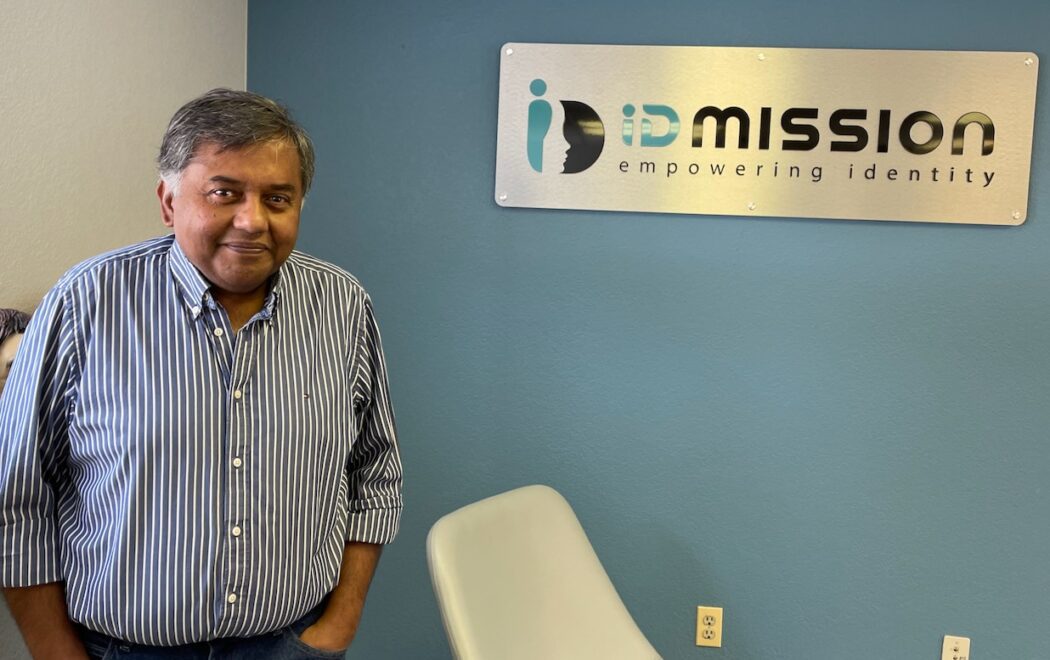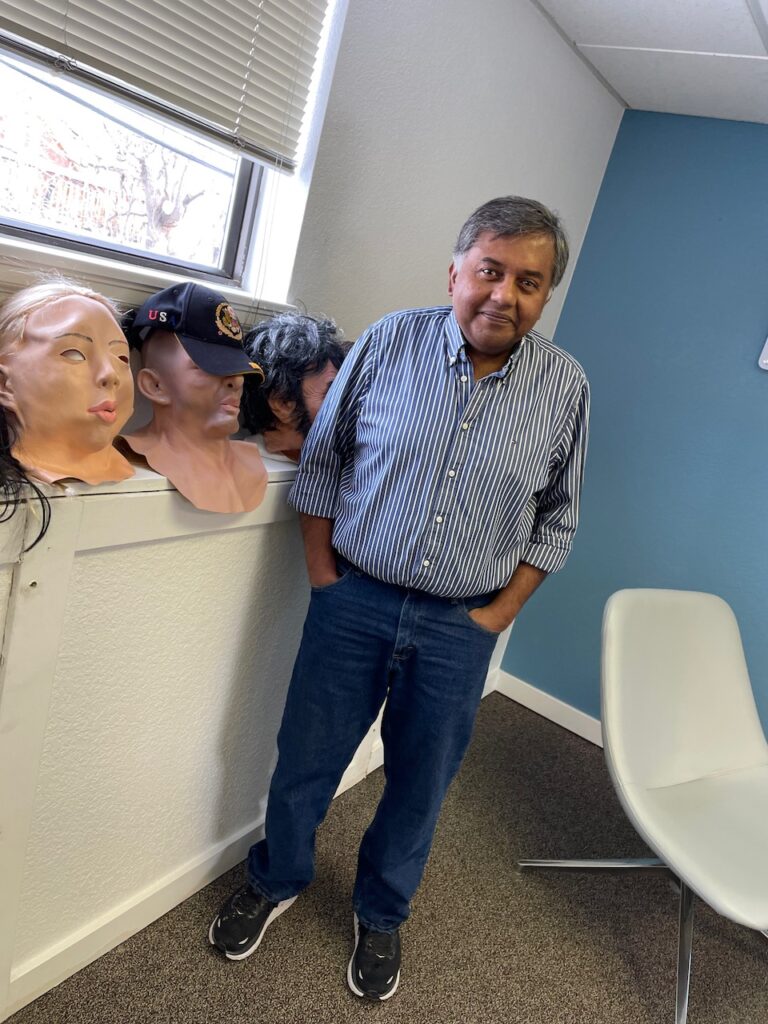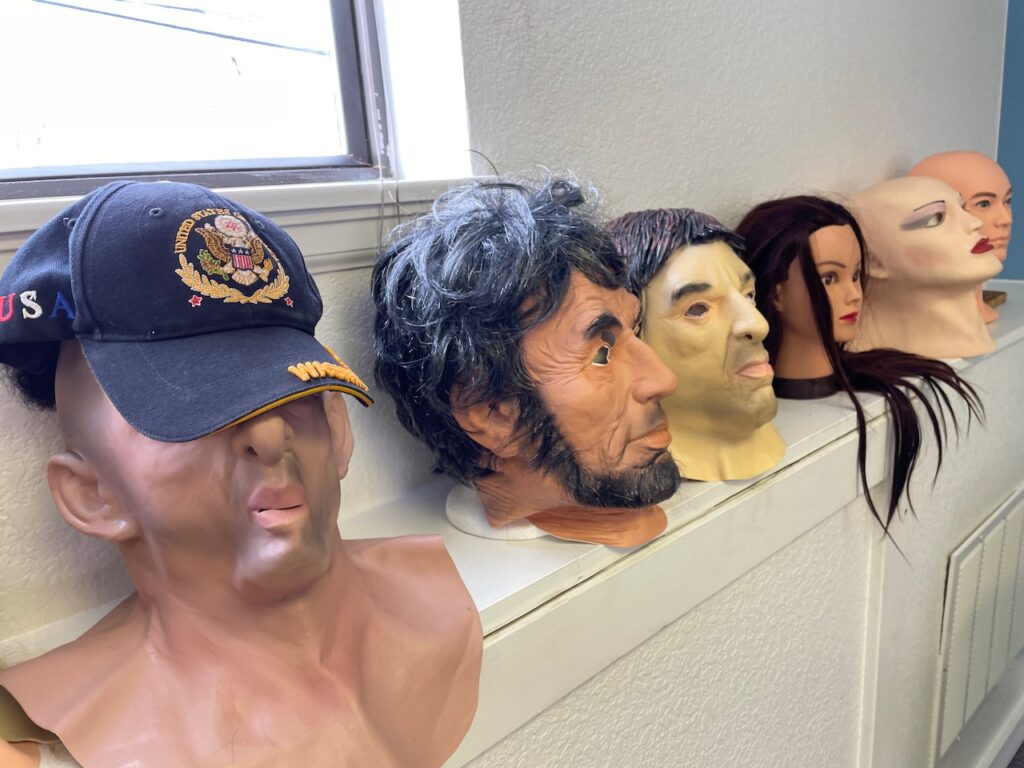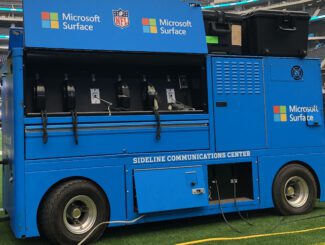
BOULDER, Colo. — IDmission is on a mission. A mission to help bring faster and more secure ID and age verification and payments verification to stadium concession operations.
To be clear, it’s not the company’s only mission. In fact, it’s currently only a very small part of IDmission’s overall business, in which it serves more than 100 large financial institutions and has processed 200 million identities, worldwide.
But as it turns out, the company’s online biometric verification software and systems, developed primarily to help financial institutions onboard customers and confirm transactions, are a perfect fit for the growing move toward facial-authentication technology deployments in stadium operations. That’s why two of the first uses of facial-authentication systems in stadium situations have turned to IDmission to power their device-driven age and payment verifications, allowing for a much faster customer transaction, either at a stand or even in a spectator’s seat.
Stadium Tech Report caught up with CEO Ashim Banerjee at the company’s Boulder office, which has a front porch with a terrific view of the city’s iconic Flatirons rock formations and an across-the-street location from one of Boulder’s newest and best pizza joints. The office also contains an impressive collection of human-head masks of all shapes and sizes, from an Abraham Linclon lookalike to various female, male and even children visages. More on the masks in a bit.
Making ID verification an online transaction
STR came to IDmission’s HQ to talk about stadium concessions, in particular the company’s role in the customer interface process for self-serve drinks stands run by TendedBar, and for its role in the “Cleveland Cold Ones” operation at First Energy Stadium, where fans can order a beer on their mobile devices and then pick it up at a special stand, using only their face as confirmation of age and payment.

According to Banerjee, IDmission provides the missing piece in the puzzle that companies like TendedBar faced while trying to make their stands as self-serve as possible. For many new concession technology deployments, like checkout-free stores, it’s fairly easy to make payments a background operation by linking or swiping a credit card. But ID verification for alcohol purchases still currently requires a live human.
As staffing for all kinds of stadium operations becomes an ongoing challenge, having a way to check IDs online — mainly through taking pictures of cards like a driver’s license or a state ID and linking it to a live face or a selfie — was the final hurdle. Enter IDmission, whose products do all that and more.
“We solve the real problem of ID verification,” Banerjee said.
According to TendedBar CEO Justin Honeysuckle, early versions of the TendedBar experience featured RFID wristbands, and then later, facial authentication but with a human needed for ID verification.
“It was a usable system, but I hated that customers had to register again every time they came to a game,” Honeysuckle said. “We thought it would be better to just register one time.”
Through his business network, Honeysuckle “met” Banerjee, whose company’s technology was a perfect fit. What IDmission does is, as the company’s web page for its new sports-stadium offerings clearly explains it, “behind the scenes, IDmission’s technology matches the customer’s facial biometrics to their identity and age, green lights the liquor dispenser, and charges the drink directly to the card on file.”
Now before you get to one of the TendedBar stands, which are located in a growing mix of stadiums that include Jacksonville’s TIAA Bank Field, Allegiant Stadium in Las Vegas and Empower Field at Mile High in Denver, you pre-register either online or on your phone. To create an account good at any of the locations of the “automated cocktail bars” you must scan a selfie, an ID scan (front and back) and a scan of a credit card.
Then when at the bar you simply step up to one of the scanning screens, show your face, and once verified, proceed to one of the touchscreen stations where you can select from a wide range of top-flight individually mixed drink options — which TendedBar claims its systems can prepare in less than 30 seconds
Though only announced with TendedBar and with facial authentication software provider Wicket’s Cleveland operation, Banerjee sees many more potential uses, in other self-service bars, liquor vending machines, and other in-seat alcohol delivery operations. At the Boulder office Banerjee showed us a mockup of a potential grab and go store device that would be able to sell alcohol without an attendant by just using cheap components like a webcam and a store-type scanner.
Faster, fewer staff needed, and more secure
Like any new technology, facial authentication systems in general and concessions-based ones in particular will likely take some time to become widely accepted, since many people may feel wary sharing sensitive personal information like copies of their IDs. But the ease of use and speed of transactions supported by the process — in Cleveland, the Wicket software is also used to speed up entry by combining face information with ticketing information — has shown a growing number of fans are willing to make the tradeoff.
The fact that such consumer systems don’t store customer info — they create a software token with all the information needed to match a face to a file — makes them different from “big brother” types of facial recognition systems used by governments, according to the providers. And while it might seem counterintuitive, Banerjee said a system that combines biometric info with financial info is far more secure than a system that, say, will confirm a transaction simply with a card or a number.

“If someone steals your card, they can charge things in a lot of places before being stopped,” Banerjee said. But as he demonstrated with his mockup combined system, the payment card is replaced by face recognition, so a card can only be charged if the associated cardholder’s face is recognized as being physically present.
Due to its operational history (the company was founded in 2011) IDmission also knows a lot about how to discern, even via a photo, if a physical ID has been altered or is not genuine. It also has access to state ID verification services that it can cross-check with. This combination of assets, Banerjee said, makes IDmission a much more reliable ID-checker than human staffers.
And from its machine-learning artificial intelligence system it can tell whether a face is human or non-human, a task the masks help out on by running scans of them into the system. With millions of transactions in its history, the company has a huge database for its systems to work with, one so large that Banerjee said it can take up to four days to train a new model for liveness detection.
“Security and convenience have always been a tug of war,” Banerjee said. “Now they can cooperate and pull in the same direction.”







